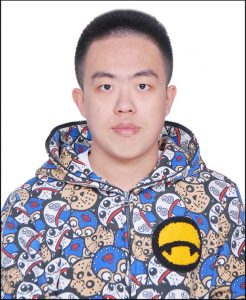March 09, 2021

Chenxi Zhao
A Mizzou Engineering graduate student took first place in his category at an IEEE competition held virtually this past weekend. The IEEE St. Louis student presentations competition is under the umbrella of the Institute of Electrical and Electronics Engineers, the largest technical professional organization in the world.
Chenxi Zhao is pursuing a master’s in computer science in the Computer Graphics and Image Understanding Lab. For his presentation, he outlined research using U-Net, a neural network developed for biomedical image segmentation. Specifically, he tested the model’s ability to identify the contours of organs in medical images.
“When we try to browse medical images from CT Scans or MRI scans, sometimes we need contours of organs,” Zhao said. “To do that manually is a lot of work, and conventional methods are sometimes inaccurate. We took a deep learning approach to improve that method.”
For the IEEE competition, Zhao modified U-Net and tested it against conventional methods on images of the heart, lungs, spinal cord and esophagus. While conventional methods worked on simple cases, it was not as accurate finding contours on more difficult images.
“Our results were much better than conventional approaches,” he said. “The results had a smaller standard deviation, and the differences were statistically significant. This confirms our method was better and more robust.”
A Valuable Experience
Zhao worked with his advisors, Ye Duan, an associate professor of electrical engineering and computer science, and Deshan Yang, an associate professor of radiation oncology at the Washington University School of Medicine in St. Louis.
“I’m lucky to have my advisors,” Zhao said. “I’ve learned a lot from them.”
This was Zhao’s first time competing in the IEEE St. Louis competition, although he participated in other competitions as an undergraduate in China. While he was nervous going in, he was also confident in his presentation, he said.
“It’s the first competition I’ve participated in since I came to America,” he said. “As an international student, it was a valuable experience for me.”
“This is a great achievement for Chenxi,” Duan said. “He should be congratulated for his presentation and work.”
Zhao will continue to train U-Net to identify contours in additional organs and hopes to publish his findings.
After completing his master’s program, he is considering pursuing a PhD degree.